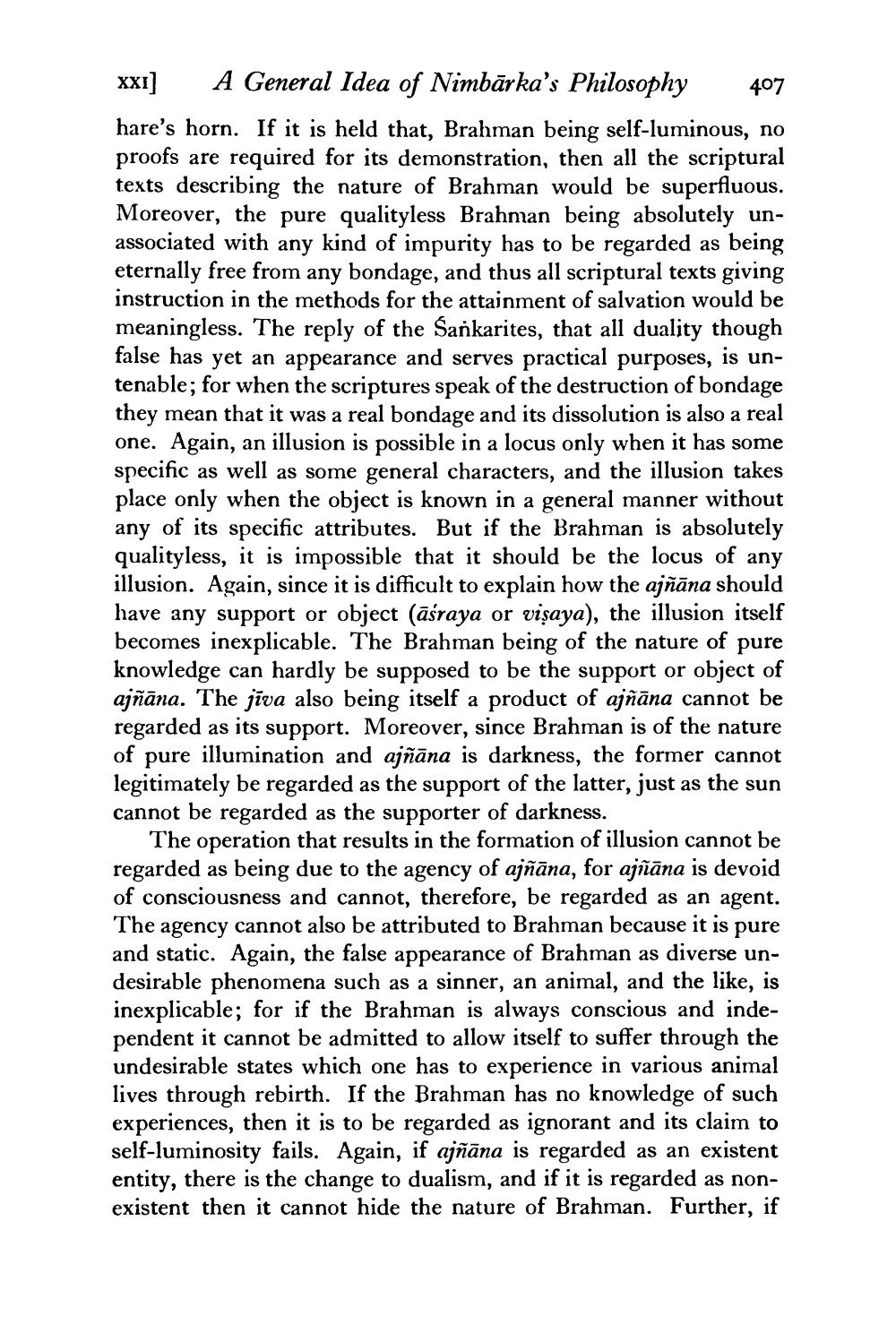________________
XXI] A General Idea of Nimbārka's Philosophy 407 hare's horn. If it is held that, Brahman being self-luminous, no proofs are required for its demonstration, then all the scriptural texts describing the nature of Brahman would be superfluous. Moreover, the pure qualityless Brahman being absolutely unassociated with any kind of impurity has to be regarded as being eternally free from any bondage, and thus all scriptural texts giving instruction in the methods for the attainment of salvation would be meaningless. The reply of the Sankarites, that all duality though false has yet an appearance and serves practical purposes, is untenable; for when the scriptures speak of the destruction of bondage they mean that it was a real bondage and its dissolution is also a real one. Again, an illusion is possible in a locus only when it has some specific as well as some general characters, and the illusion takes place only when the object is known in a general manner without any of its specific attributes. But if the Brahman is absolutely qualityless, it is impossible that it should be the locus of any illusion. Again, since it is difficult to explain how the ajñāna should have any support or object (āśraya or visaya), the illusion itself becomes inexplicable. The Brahman being of the nature of pure knowledge can hardly be supposed to be the support or object of ajñāna. The jīva also being itself a product of ajñāna cannot be regarded as its support. Moreover, since Brahman is of the nature of pure illumination and ajñāna is darkness, the former cannot legitimately be regarded as the support of the latter, just as the sun cannot be regarded as the supporter of darkness.
The operation that results in the formation of illusion cannot be regarded as being due to the agency of ajñāna, for ajñāna is devoid of consciousness and cannot, therefore, be regarded as an agent. The agency cannot also be attributed to Brahman because it is pure and static. Again, the false appearance of Brahman as diverse undesirable phenomena such as a sinner, an animal, and the like, is inexplicable; for if the Brahman is always conscious and independent it cannot be admitted to allow itself to suffer through the undesirable states which one has to experience in various animal lives through rebirth. If the Brahman has no knowledge of such experiences, then it is to be regarded as ignorant and its claim to self-luminosity fails. Again, if ajñāna is regarded as an existent entity, there is the change to dualism, and if it is regarded as nonexistent then it cannot hide the nature of Brahman. Further, if




